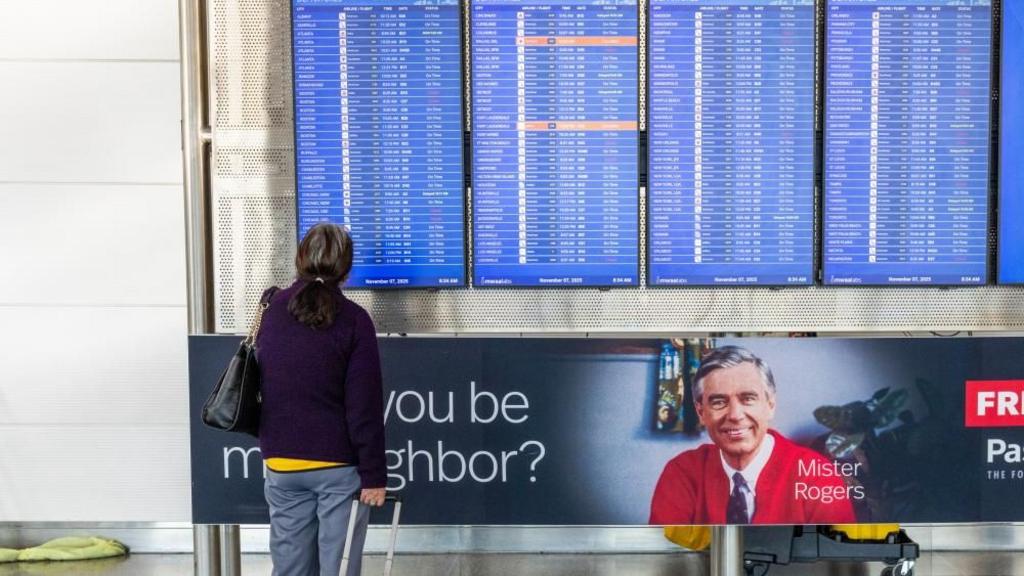US air travel continues to experience significant disruptions for a third consecutive day, with flight delays and cancellations mounting as Transportation Secretary Sean Duffy warned of a potential “trickle” effect on air traffic should the government shutdown persist.
As of Sunday morning, approximately 1,400 flights within, to, or from the United States have been cancelled, with an additional 2,700 flights delayed, according to data from FlightAware. Newark, New Jersey, reported the most substantial delays, averaging over two hours.
Amid the ongoing disruption, reports from US media outlets suggest that lawmakers are actively pursuing a potential agreement to resolve the government funding dispute and bring an end to the shutdown.
The Senate was scheduled to convene in a rare weekend session on Sunday to address the matter.
Secretary Duffy emphasized the increasingly dire consequences for air travel if a swift resolution is not achieved.
“You’re going to see air travel be reduced to a trickle,” he stated on CNN Sunday, cautioning that Thanksgiving holiday travelers may face significant challenges reaching their destinations.
“Many of them are not going to be able to get on an airplane, because there are not going to be that many flights that fly if this thing doesn’t open back up,” he said.
Last week, the Federal Aviation Administration (FAA) announced plans to reduce air travel capacity by up to 6% this weekend and 10% by the following weekend at 40 of the nation’s busiest airports. While international flights are not directly affected, the FAA noted that airlines may choose to cancel some of these flights as well.
The reductions in air traffic allowances are reportedly triggered by fatigue among air traffic controllers, who are working without pay during the shutdown, leading to staffing shortages.
Secretary Duffy noted that an offer from Defence Secretary Pete Hegseth to deploy military air traffic controllers was declined due to their lack of certification for directing air traffic at civilian airports.
The government shutdown, which began on October 1, has left hundreds of thousands of federal workers without pay and cast uncertainty over food assistance programs for low-income Americans, with the administration agreeing to fund only half of monthly benefits.
Sunday marked the 40th day of the longest government shutdown in history, as Republicans and Democrats remain divided over a funding resolution to reopen the government.
Both Republicans and Democrats have attributed blame to each other for the ongoing impasse and the resulting travel disruptions.
On Friday, the White House accused Democrats of “inflicting their man-made catastrophe on Americans just trying to make life-saving medical trips or get home for Thanksgiving”.
Senate Minority Leader Chuck Schumer, on Saturday, accused Republicans of “playing games with people’s livelihoods”.
Democrats have maintained their refusal to support any Republican spending plan that does not include funding for health insurance subsidies, while Republicans seek to provide government funding without any additional provisions.
President Donald Trump suggested over the weekend that funds should be allocated directly to Americans for purchasing health insurance rather than to insurance companies.
Republican senators are reportedly developing a compromise package aimed at resolving the impasse, with a potential vote to advance legislation possibly occurring on Sunday.

